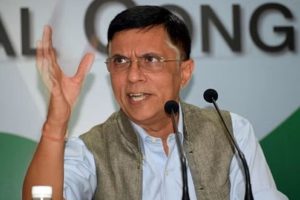India is no longer just a follower but is now setting global benchmarks, offering leadership and pioneering innovations across sectors, Union Minister Jitendra Singh said on Wednesday.
At a function here, he highlighted the remarkable advancements India has made in recent years, in the fields of space, biotechnology, and nuclear energy etc, positioning itself as a key player on the world stage.
Advertisement
Dr Jitendra Singh pointed out that India’s space sector has witnessed an unprecedented transformation, with a surge in ambitious missions and international collaborations. The Space Docking Experiment (SpaDeX) is a testament to India’s technological progress, paving the way for future space missions, including Gaganyaan, Chandrayaan-4, and the Bhartiya Antriksh Station, India’s upcoming international space station.
India has also emerged as a preferred destination for satellite launches, earning global credibility. The nation has successfully launched 433 foreign satellites, of which 396 were deployed in the last decade alone, generating USD 157 million and euro 260 million in revenue from 2014-2023.
The historic success of Chandrayaan-3, which made India the first country to land near the Moon’s south pole, has positioned ISRO at the forefront of lunar exploration. The world’s leading space agencies, including NASA, are now awaiting India’s findings from the Moon’s southern pole, a milestone that underscores the nation’s rising dominance in space research.
The minister also highlighted India’s pioneering role in biotechnology and bioeconomy. India became the first country to develop a DNA-based COVID-19 vaccine, demonstrating its leadership in vaccine research and development. Furthermore, India has introduced the first herpesvirus vaccine for cervical cancer, reinforcing its position as a leader in preventive healthcare.
India’s bioeconomy has surged from USD 10 billion in 2014 to nearly USD 140 billion today, with projections to reach USD 250 billion in the coming years. The number of biotech startups has skyrocketed from just 50 in 2014 to nearly 9,000 today, making India a global hub for biotech innovation. In bio-manufacturing, India now ranks third in the Asia-Pacific region and 12th globally, with its influence expanding rapidly.
India has also taken a bold step into space biology, laying the foundation for human survival beyond Earth. ISRO and the Department of Biotechnology have signed an MoU to advance space biotechnology research, focusing on growing plants in space to sustain long-term space missions. The study of space medicine and human physiology in extraterrestrial environments is becoming a critical area of research, and India is now setting global standards instead of just following them.
India’s nuclear energy program, once met with scepticism, is now recognised for its peaceful and sustainable ambitions. The country has set an ambitious target of 100 gigawatts of nuclear energy by 2047, aiming to reduce carbon emissions by 50 per cent, a commitment that is influencing global climate strategies. The world has now acknowledged India’s nuclear policy, which was envisioned by Homi Bhabha for peaceful purposes, as a model for responsible energy development.











